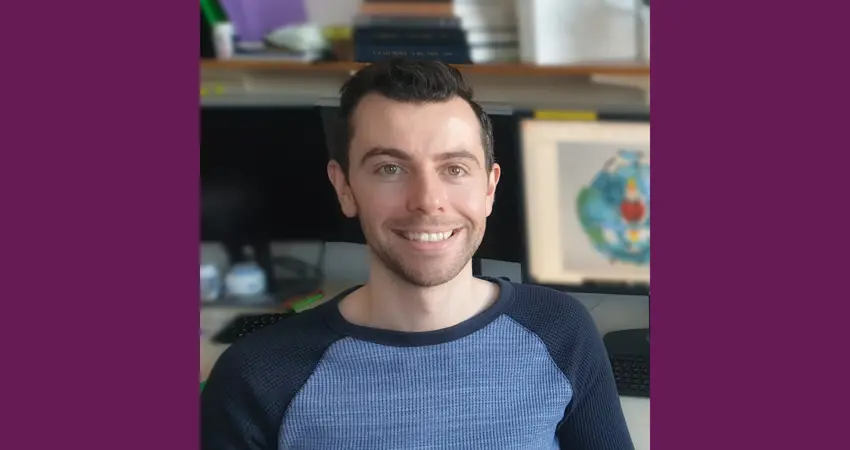06 May 2022
Thermofluids researcher wins national prize for ‘Best PhD in Heat Transfer’
Post-doctoral Research Assistant, Dr Daniel Fahy, has won the prestigious Geoffrey Hewitt Prize for the best PhD in Heat Transfer.

Held earlier this month in Manchester, the UK National Heat Transfer conference creates an opportunity for researchers to address a variety of current research problems in heat transfer, encapsulating both fundamental issues as well as industrial applications. Dr Fahy was nominated for the £500 prize by his supervisor at the Oxford Thermofluids Institute.
Daniel expressed his gratitude towards those who supported him throughout the process; “I'm honoured to have received this prestigious award, it's a great morale booster as I begin my career. I would like to thank my supervisor Professor Peter Ireland, and all my colleagues at the Oxford Thermofluids Institute, without whom this would not have been possible. I'd also like to thank the EPSRC in Future Propulsion and Power and Rolls-Royce Plc. for their support.”
“I would like to thank my supervisor Prof. Peter Ireland, and all my colleagues at the Oxford Thermofluids Institute, without whom this would not have been possible.”
Daniel is a post-doctoral research assistant at the Oxford Thermofluids Institute (OTI), where he focuses on finding innovative solutions to complex heat transfer problems. In 2015, he completed his Bachelor's degree in Mechanical Engineering at the National University of Ireland, Galway. He then completed a Masters of Research in Gas Turbine Aerodynamics at the University of Cambridge before joining the OTI to complete his DPhil studies

The focus of Daniel’s thesis was natural convection heat transfer in a gas turbine. He explains, “Two unique world-class facilities were developed that allowed for a substantial step forward in our understanding of the shutdown cooling cycle of a large civil gas turbine. Furthermore, an accurate method of determining the wall heat flux was developed using a cleverly designed temperature probe, along with a novel infrared visualisation method for surface heat flux.”
“An extensive experimental campaign has quantified important interactions between various engine components. The findings have been

 incorporated into a sophisticated transient conduction model that has applied the findings to realistic engine conditions.” Moreover, Daniel has invented two viable mitigation strategies that can alleviate one of the undesirable consequences of shutdown cooling in a gas turbine – rotor bow. Both practical strategies were validated experimentally and computationally. This research into improving shutdown cooling helps prolong the lifetime of turbine components, preventing damage, and improving their operational capability; ultimately, this is making the process more sustainable and environmentally friendly.
incorporated into a sophisticated transient conduction model that has applied the findings to realistic engine conditions.” Moreover, Daniel has invented two viable mitigation strategies that can alleviate one of the undesirable consequences of shutdown cooling in a gas turbine – rotor bow. Both practical strategies were validated experimentally and computationally. This research into improving shutdown cooling helps prolong the lifetime of turbine components, preventing damage, and improving their operational capability; ultimately, this is making the process more sustainable and environmentally friendly.
Daniel also works as a research engineer at Qdot Technologies. A spin-out from the OTI, Qdot's mission is to enable clean flight through developing hybrid propulsion systems. Daniel has also won numerous international design awards.



